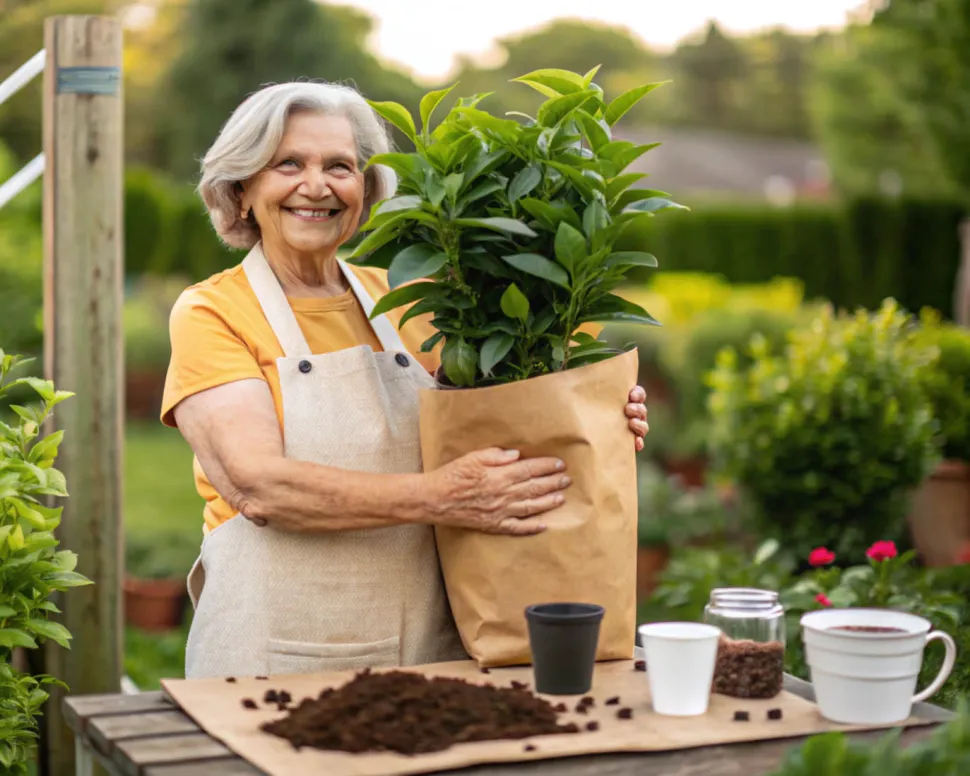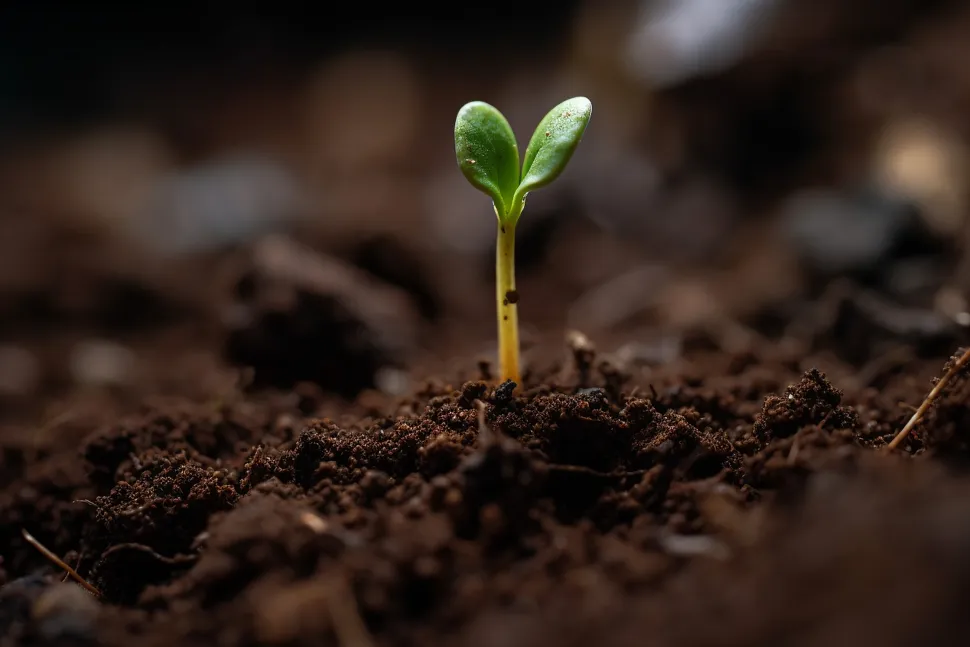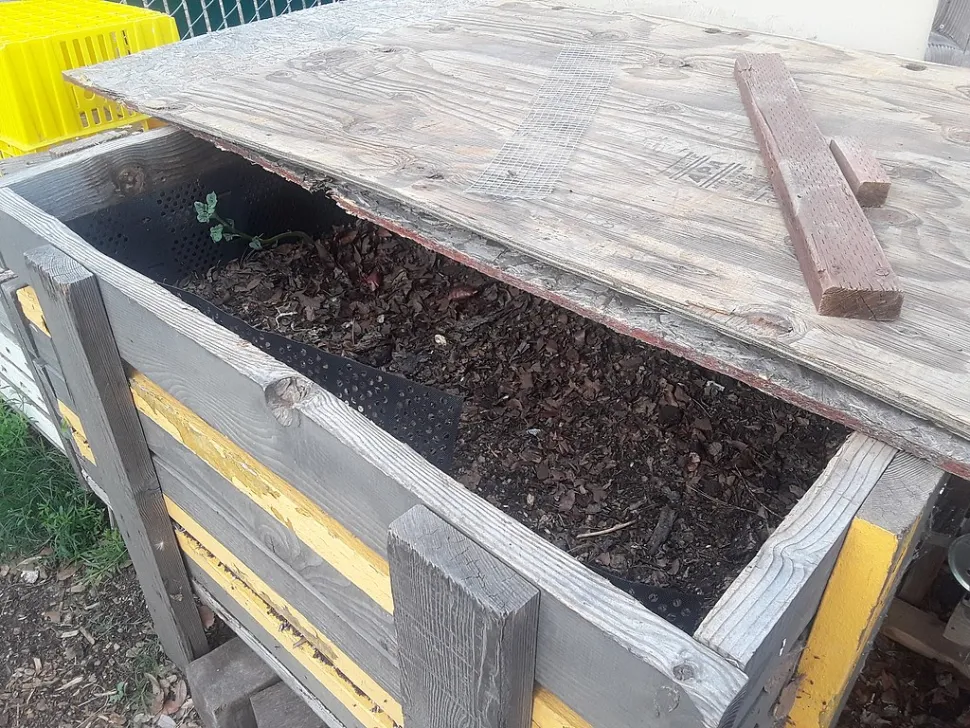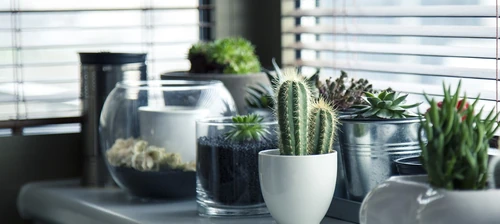
Coffee grounds and plants: myths and realities
Article for :All parent plants
Article summary
My grandmother, the Internet and many gardening enthusiasts are always talking about the benefits of coffee grounds for our plants. As a fertilizer, insecticide and growing medium, it's equally useful for vegetables, flowers and houseplants. But is this really the case?
Myth no. 1: coffee grounds are an excellent plant fertilizer

For some, coffee grounds are a veritable black gold - Photo by Michal Jarmoluk / Freerangestock
Rich in nitrogen, coffee grounds are a miracle home fertilizer. All you have to do is put some in the planting hole of your shrubs, or place some at the foot of your plants in the garden and outdoors, and you'll have lush vegetation.
In fact, a number of studies carried out in Japan and Spain have shown that mixing coffee grounds with soil increases the presence of nitrogen, as well as phosphorus, potassium and copper in the soil. The first three elements have the same components as those found in commercial fertilizers.
However, plants do not immediately assimilate the nitrogen, phosphorus and potassium contained in coffee grounds. The nutrients remain trapped in the soil for at least nine months before plants consume them and reap their benefits.
Coffee grounds also contain caffeine, tannins and polyphenols. These substances are toxic to plants and are released at the same time as nitrogen, phosphorus and potassium, inhibiting plant growth.
The best way to use coffee grounds in the garden is to use them to control weeds. By covering the soil with the remains of your capsules, you should be able to get rid of troublesome quackgrass, bindweed or dandelions. Provided you give yourself the means! Japanese researchers have calculated that you need to pour in 16 kilos of coffee grounds per square metre to get a convincing result on weeds!
Myth 2: Coffee grounds repel pests

Snail 1 - Coffee grounds 0
Every gardener has heard this grandma's trick: coffee grounds are the solution for getting rid of unwanted guests. It could repel the neighbor's cat that likes to scratch at the base of your flowers, the slugs that devour your strawberries and the snails that eat your lettuce leaves.
The first argument put forward by coffee grounds proponents is that their smell scares away cats and dogs. I haven't found any studies on the subject, but one thing's for sure: my cat is always around when someone's having a cup of coffee. If the scent bothers him, it's a lot less annoying than hoping for a drop of milk!
Coffee grounds are also said to have a repellent effect on ants. Covering the anthill or entrance hole with the brown powder would dissuade them from coming. The method does indeed work. But only temporarily. At first, the insects turn away. Eventually, however, they return and find a way around the obstacle. What's more, as with humans, coffee consumption is said to boost the colony's concentration and faculties. Eventually, you could find yourself with an army of overexcited, caffeine-addicted ants in your garden!
The results are a little more conclusive with gastropods. When you put a slug or snail in front of a pile of coffee grounds, it will initially turn away, no doubt bothered by the smell. If it has no other choice, it will try to cross. But the powdery texture of the dry coffee grounds makes progress difficult. And the mollusc ends up looking elsewhere.
Could coffee grounds be the natural remedy for getting rid of gastropods without harming them? Not really. The effectiveness of such a barrier fades with time and water. What's more, the first time it rains, your caffeinated barrier disappears and you'll have to start all over again. It's better to use other solutions, such as slug netting, to protect your tomatoes, vegetables and plants.
Myth 3: Coffee grounds increase soil acidity

The effect of coffee grounds on soil pH is temporary - Photo by Christopher Paquette / Flickr
Do you dream of hydrangeas, Acer palmatum, rhododendrons and other acid-loving plants, but your garden's soil pH is too high? If you listen to the Internet and grandmothers, adding coffee grounds to the soil could solve the problem.
In fact, the pH of coffee grounds is slightly acidic. It's said to be slightly below 7, between 6 and 6.9. As it decomposes, coffee grounds do lower the soil's pH. But this doesn't last long enough for your plants to flourish. Once the decomposition process is complete, PH rises again. It then returns to its original level.
If you're thinking of planting Camellia japonica but your soil is too chalky, forget coffee grounds. Opt for pot culture. That way, you'll be able to control your growing medium.
Myth No. 4: planting seeds or cuttings in coffee grounds accelerates growth

Coffee grounds are said to make plants germinate faster, speed up growth and even bring back loved ones - Photo by Altered Reality /Stocksnap
Coffee grounds make an excellent substrate for seedlings. By mixing it with a little potting soil, it's rumored to create fertile soil that's ideal for the development of young plants. It's sometimes claimed that germinating seeds in coffee grounds speeds up the process. Finally, some claim that coffee grounds have the power to make the seeds spread evenly in the pot.
Did you put your tomato seeds in coffee grounds? You'll have to wait a long time before you see any results. Several studies have highlighted the presence of chlorogenic acid in coffee grounds. This substance has an anti-germinative effect. Your seeds may therefore fail to germinate if you plant them in a mixture of coffee grounds and potting soil, or worse, in pure coffee grounds.
If you want to sow seeds, the best thing to do is to use a rich, light horticultural substrate, such as potting soil for seedlings and plantations. And if you want to enrich your soil, it's best to work it or add compost.
Myth 5: The best use of coffee grounds for houseplants and the garden

Coffee grounds are most useful in the compost bin. Photo by Joshua Maddox /Wikipedia
Are you an americano addict who wants to recycle coffee grounds in the garden? There's a way to use coffee grounds when gardening. Put it in the compost. Mixed with other green matter and once decomposed, it provides fertilizer for your outdoor or indoor plants.
But here again, you need to be careful. Too much coffee in your composter (more than 20%) prevents the development of the fungi essential to the compost's life.
By Servane Nemetz
the 03-12-2024 à 16h38
the 03-12-2024 à 16h38












